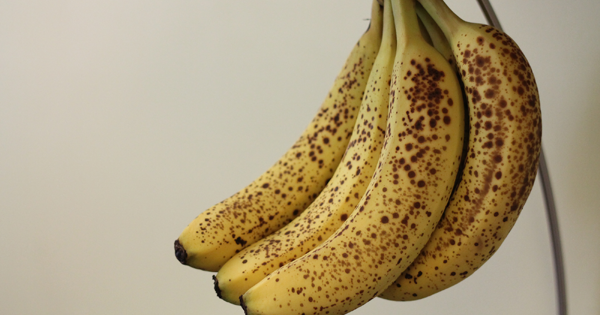Advertisement
Gauging the ripeness of a fruit can be tricky for any healthy eater, but appearances aren’t always what they seem.
To the untrained eye, a banana that’s gone bad may be covered in dark brown spots, which is why throwing it away is probably your first instinct.
But not so fast! Those brown spots actually mean your banana is at its peak ripeness—and knowing when to eat it can have a major impact on your overall health.
What causes brown spots on bananas?
According to Kathy Wollard, author of Newsday's “How Come?” brown spots are usually the result of a banana’s high sugar content. A banana with tons of brown spots will be sweeter than one that’s green or completely yellow. Brown streaks, on the other hand, may be caused by too much humidity, which can make the banana mushy and inedible.
How do these brown spots affect the human body?
In a recent experiment, Japanese scientists found that the brown spots on bananas contain a powerful cancer-fighting substance called TNF (Tumor Necrosis Factor), which has the ability to combat abnormal cells. The longer a banana ripens, the researchers say, the more antioxidants are produced to strengthen the body’s immune system. At the end of the experiment, the scientists concluded that ripened bananas may prevent certain lifestyle-related diseases and carcinogenesis.
Should bananas be eaten regularly?
The Japanese researchers in the previous experiment have encouraged individuals to eat 1 or 2 ripened bananas each day. To make sure you don’t miss out on the nutritional benefits that bananas have to offer, store them in the refrigerator once they are fully ripened.




